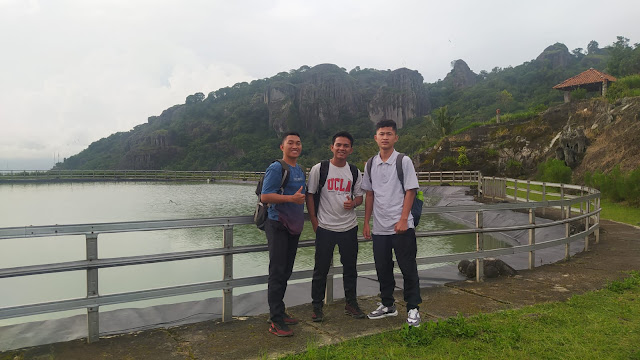The Mentawai Islands Regency is located on the west coast of Sumatra which belongs to West Sumatra province. It was formed into a regency based on RI Law no. 49 of 1999 covering approximately 6.011,35 km2 in four main islands, namely Siberut Island, Sipora Island, North Pagai Island, and South Pagai Island.
The majority of the population of the Mentawai islands are indigenous Mentawai people and most of the population work as farmers, both rice field farmers and fruit farmers (coconut, durian, mango, mangosteen, rambutan, and so on). I come from the village of Matobe, one of the best fruit producers in the Mentawai Islands Regency. Matobe village has a nickname as ‘king of fruit village’ because of its various kinds of fruit products every year, namely durian, mangosteen, and rambutan.
There is one plant that never runs out of its friuts, namely coconut. Coconut is one of the people's income to improve their living standard. However, the people only use the coconut meat and shell to be sold, while the coconut fiber is only burned or thrown away. The local people do not know that coconut fiber can be their alternative income.
Coconut fiber has benefits, such as having a strong structure to make them durable and long-lasting, if it is used as a craft, its brown color gives a natural color, and the coconut fiber is resistant to the effects of seawater. Coconut fiber can be processed into handmade doormats, floor brooms, plant pots, and decorations. Handicrafts from coconut fiber can generate money to support the community's economy.
Knowing that coconut coir is very useful for making interesting handicrafts, the author wants to invite the people in the village to process coconut fiber into various crafts which they can sell for income. The challenge is how to convince people to ‘plunge into’ this craft and how to market their products. The income from coconut processing can be more than what people think. This is the first step for students to get to know the potencies of an area and to process the potencies into useful products for the sake of the local community. ***


.png)











.jpg)
.jpg)
.jpg)

.jpg)













.jpg)



.jpg)




















.jpg)



.jpg)









.png)
.png)








.png)
.png)


.png)






.jpg)









.jpg)